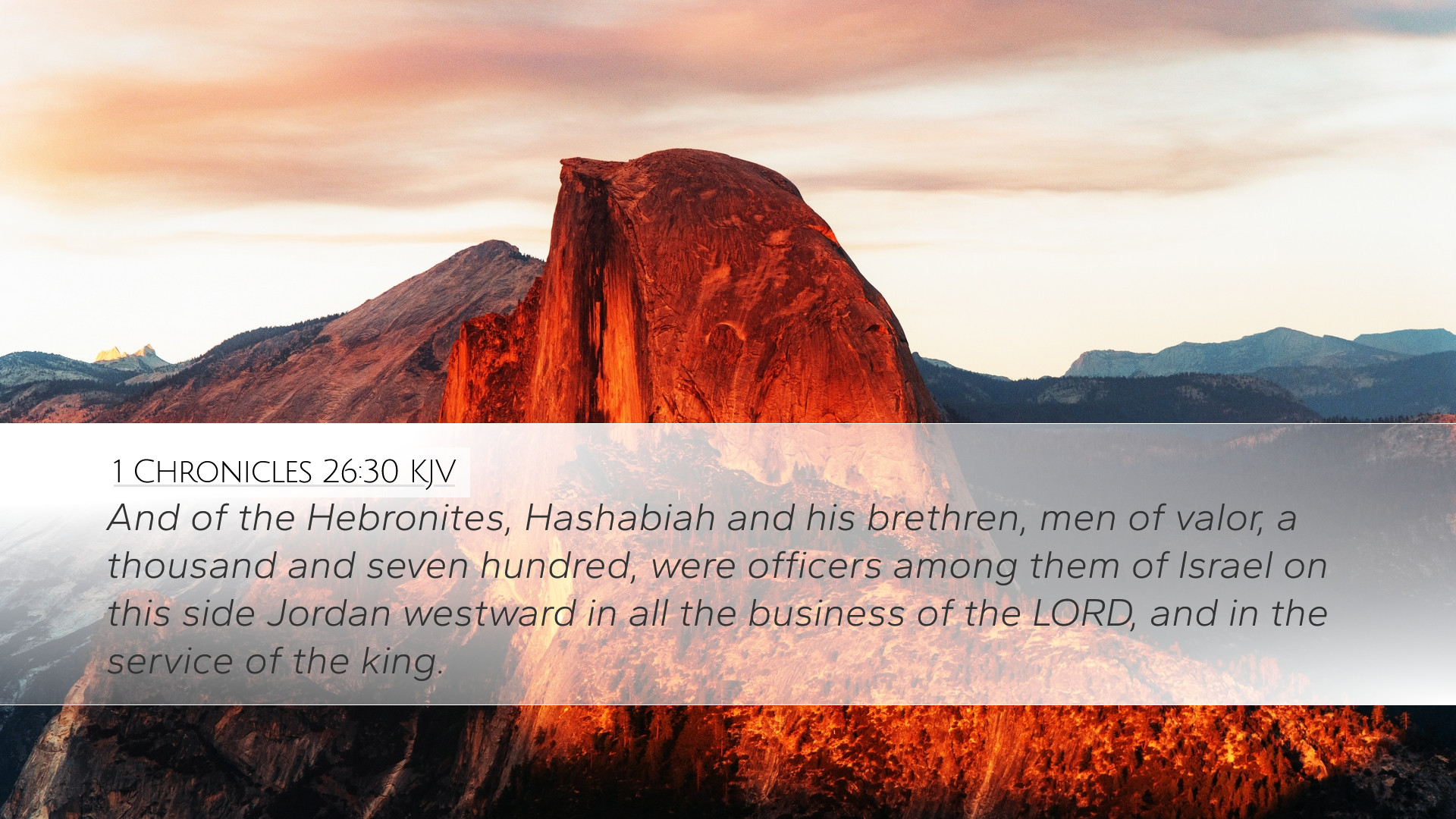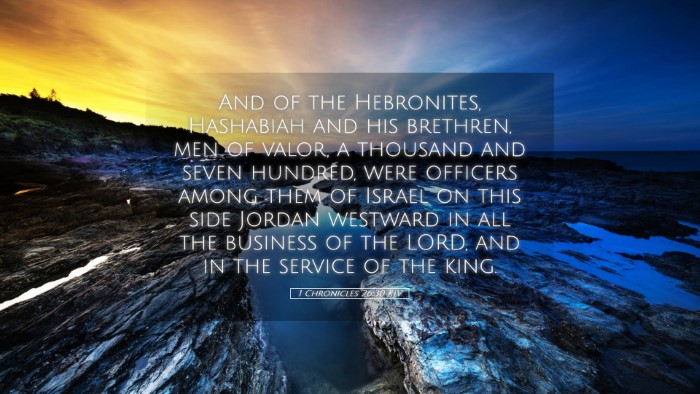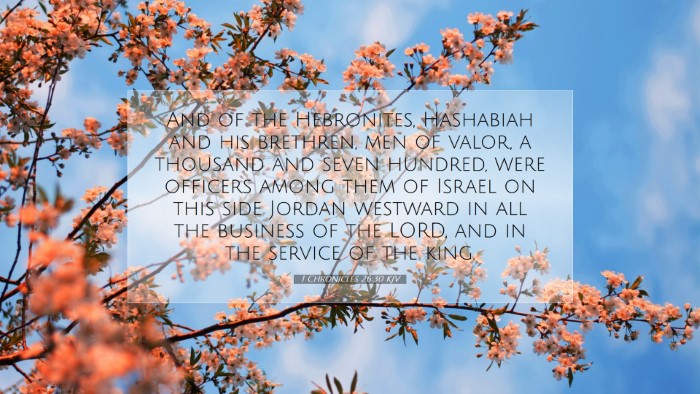Commentary on 1 Chronicles 26:30
Verse Context: 1 Chronicles 26:30 states, "And of the Hebronites, Jerijah was chief of the Hebronites, according to the generations of his fathers. In the fortieth year of the reign of David they were sought for, and there were found among them mighty men of valour at Jazer of Gilead." This verse is situated within the context of the organization of temple duties and the establishment of order among the Levites and various tribal leaders under King David.
Introduction
This passage highlights the importance of leadership within Israel's context, particularly focusing on the Hebronites, a group tasked with key roles in the administration of the Temple and, by extension, the worship life of Israel. The Chronicler emphasizes their valor and historical significance in relation to King David's reign.
Exegesis and Commentary
Historical Significance
Albert Barnes notes that the Hebronites possessed a rich heritage, tracing their lineage back to Caleb. This lineage not only affirms their legitimacy but also emphasizes God's choice in their selection for leadership roles. The reference to the fortieth year of David's reign signifies a pivotal moment, likely at the height of his power, where establishing order among the Levites was crucial for temple worship.
Matthew Henry elaborates on the notion of divine providence at play in this historical context; that God actively orchestrates who is in leadership positions at various times throughout Israel's history. The Chronicler reflects on how the Hebronites were distinguished for their might, quality, and capability, suggesting that roles in the temple were reserved for those who possessed not only spiritual qualifications but also physical valor.
Theological Reflection
Adam Clarke emphasizes the spiritual implications of the roles of the Hebronites. Their strength and valor reflect attributes necessary for standing before God and engaging in spiritual warfare. Just as the Hebronites were called to protect and serve in the temple, so are modern believers called to stand firm in their faith, embodying strength and relentless pursuit of righteousness.
It further raises the question of who is appointed to lead within the Church today. Just as the Hebronites were recognized for their capabilities, leaders in contemporary congregations must be those who exhibit spiritual strength coupled with integrity.
Practical Insights for Leaders
- Importance of Heritage: Understanding one's spiritual heritage can be a powerful motivator for leadership in church settings. Leaders are encouraged to reflect on their genealogies of faith—what those before them have done to uplift the community.
- Valuing Strength: The church today should value both spiritual richness and practical capability, ensuring that its leaders and workers are well-rounded in their skills.
- Faithful Stewardship: Leaders should recognize that their roles, much like the Hebronites’, are a form of stewardship that requires dedication, responsibility, and courage.
Conclusion
1 Chronicles 26:30 provides profound insights not only into the structure of ancient Israel's leadership but also into the nature of contemporary Christian leadership. The valor of the Hebronites is a reminder that those who serve in leadership roles in the church must possess both a solid spiritual backbone and the practical strength to lead.
In learning from the examples set forth in scripture, pastors, students, theologians, and scholars can find inspiration and guidance for their personal leadership journeys.


